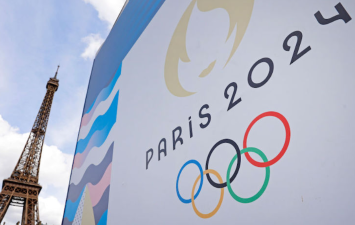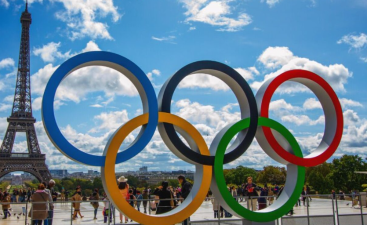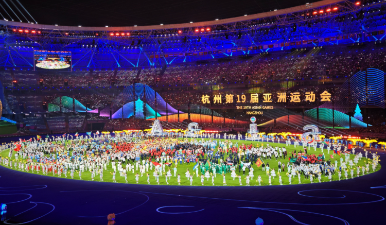How Do Asian Games Compare to the Olympics in 2025?
The Asian Games and the Olympic Games, two major international sporting events, each carry unique significance and value, enjoying immense global recognition and influence. While both are venues for athletic competition, they differ significantly in several respects.
The Asian Games and the Olympic Games, two major international sporting events, each carry unique significance and value, enjoying immense global recognition and influence. While both are venues for athletic competition, they differ significantly in several respects.
About the Asian Games
- Definition and Origin:
The Asian Games, officially known as the Asian Games, are the largest multi-sport event in Asia. Originating in the early 20th century as the Far Eastern Games, they were initiated by the Philippine Athletic Association to promote sports exchange and cooperation among Asian countries. The first Asian Games was held in New Delhi, India in 1951, marking the official launch of the Asian Games.
- Frequency and Scale:

The Asian Games are held every four years, alternating with the Olympic Games. While smaller in scale than the Olympics, they remain one of the most important sporting events in Asia. Each Asian Games attracts thousands of athletes from across Asia, competing in events such as track and field, swimming, basketball, football, and table tennis. 3. Purpose and Significance:
The purpose of the Asian Games is to promote the Olympic spirit, encourage and guide the development of Asian sports, and foster friendship and solidarity among Asian nations. It not only provides a stage for Asian athletes to showcase their talents, but also offers an important opportunity for cultural exchange and cooperation among Asian nations.
About the Olympic Games
- Definition and Origin:
The Olympic Games, officially the Olympic Games, are the world's largest multi-sport event, hosted by the International Olympic Committee. They originated in ancient Greece and were named after their venue, Olympia. After the ancient Olympic Games ceased to be held, Frenchman Pierre de Coubertin proposed the idea of holding the modern Olympic Games in the late 19th century. The International Olympic Committee was established in 1894, and the first modern Olympic Games were held in Athens, Greece, in 1896.
- Frequency and Scale:
The Olympic Games are held every four years, lasting no more than 16 days. They are the world's most influential sporting event, attracting athletes from over 200 countries and regions. The Olympic Games encompass both the Summer and Winter Olympics, including athletics, swimming, gymnastics, basketball, football, ice hockey, skiing, and other disciplines.
- Purpose and Significance:
The purpose of the Olympic Games is to promote friendship, unity, and equality among young people through non-discriminatory sports embodying the Olympic spirit, thereby contributing to a peaceful and better world. It is not only the highest stage for global sports competition but also an important platform for cultural exchange and cooperation among nations.

Differences between the Asian Games and the Olympic Games
- Geographical Scope and Participating Countries:
The Asian Games is a multi-sport event in Asia, primarily for Asian countries. Currently, the Olympic Council of Asia has 45 member countries and regions, all of which are eligible to participate in the Asian Games. The Olympic Games, on the other hand, is a global multi-sport event, open to all countries and regions. Currently, the International Olympic Committee has 206 member countries and regions.
- Scale and Events:
The Olympic Games are much larger in scale than the Asian Games, with far more participating countries and athletes. The Olympic Games encompass both the Summer and Winter Olympics, offering a wider variety of events. While the Asian Games also feature multiple sports, they are more limited than the Olympics and do not include winter sports.
- Eligibility and Delegation Size:
The Olympic Games are open to all, allowing each country and region to send qualified athletes, resulting in larger delegations. In contrast, the Asian Games are limited to Asian countries and regions, allowing each country and region to send one delegation, resulting in relatively smaller delegations.
- History and Influence:
The Olympic Games, with its history dating back to ancient Greece, boast a long history and profound cultural heritage. They serve as the pinnacle of global sporting competition and a vital platform for cultural exchange and cooperation between nations, enjoying worldwide recognition and influence. While the Asian Games also boast a significant historical and cultural heritage, they are somewhat inferior to the Olympics, and their influence and recognition are primarily concentrated in Asia.
- Organizational Structure and Official Language:
The Olympic Games are hosted by the International Olympic Committee and have a strict organizational structure and regulations. The official languages of the Olympics are French and English, with the French version prevailing in cases of ambiguity in interpretation. The Asian Games, hosted by the Olympic Council of Asia, have a more flexible organizational structure. The Asian Games have only one official language: English.
- Culture and Characteristics:
As a global sporting event, the Olympic Games boast a diverse and international cultural landscape. Each Olympic Games hosts a variety of cultural events and exhibitions showcasing the cultural brilliance and artistic achievements of various countries. The Asian Games, on the other hand, place a greater emphasis on the inheritance and development of Asian culture. Each Asian Games incorporates elements and characteristics of Asian culture, showcasing its unique charm.









